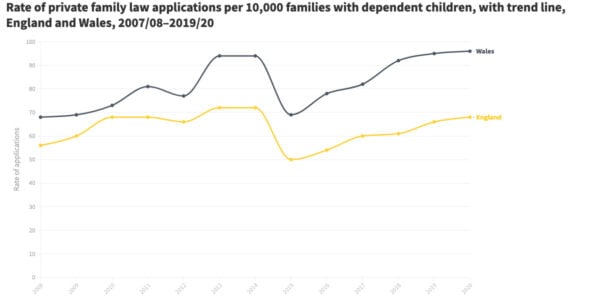The President of the Family Division, the Rt. Hon. Sir Andrew McFarlane, has today published a toolkit for family judges to support them in writing to the children involved in cases before them.
As the toolkit sets out, judges writing to children is a key means by which judges can ensure children feel heard and are supported to understand what the family court has decided in relation to their family and why.
The toolkit is the product of a collaboration between the judiciary, children and young people and other professionals who work in and around the family justice system. Nuffield Family Justice Observatory supported its development, sharing findings from research on children’s experiences of family court proceedings.
Writing to children is one important way of ensuring that children feel involved in family court proceedings – put simply it lets a child know the judge was thinking about them when they made their decision. A child’s right to participate in proceedings and to have the final decision communicated to them in a way they can understand is enshrined in international and domestic legislation and guidance however it does not routinely happen.
The guidance gives public and private family law judges an approach for writing to children created after input from children and young people, judges, researchers and academics, social workers, clinical psychologists, communication experts and others who work with children and the courts.
I often think about how different things could have been if I’d had a letter from the judge who made that custody decision when I was eight years old. A letter that spelled out the truth: my dad hadn’t been forced to leave us. He had made that choice himself. If I’d had that letter, I would have known who to trust, who had really been protecting us all along. That letter would have given me certainty, a foundation to stand on when everything else felt shaky.
Anne, a young woman from the Family Justice Young People’s Board, who helped develop this toolkit following her own experiences of proceedings
In his foreword for this resource, Sir Andrew said:
“The benefit of judges communicating with the child at the centre of proceedings has long been recognised, yet few of us have ever written to a child to explain our decision in their case. There is an understandable judicial reluctance in this regard partly because of the realisation that the letter will be important and there is a fear of saying the ‘wrong thing’. As is made plain throughout this guidance by direct quotation from children, a child is entitled to be given an accurate and informative account of what was decided, and why, from the judge who made the decision. This will be important for the young person in understanding that their wishes and feelings have been taken into account by the court, and in supporting them to accept or make sense of the decision as they move forward with their life thereafter.”
“My hope is that once judges have written to children in a few cases, doing so will rapidly become the norm and no longer a task to be avoided. The publication of this guidance has the potential to change the culture and to make the sending of a short letter from the judge the norm in all substantive cases.”
Evidence backs up the importance of judges writing to children, showing that when children feel heard, understood and informed about court proceedings this can help them feel better about the decisions being made. When this doesn’t happen, it can increase the distress, uncertainty and confusion children experience. Young people describe feeling like they are being ‘done to’ rather than ‘worked with’ and a letter at this juncture in their lives can help immensely with their understanding and can support their sense of identity and belonging in later life.
Children’s rights to have a voice and participate in proceedings are enshrined in law. But we know that their experiences often don’t match up to what they want or need or are entitled to. This toolkit represents an important step forward – an active response to what children have said needs to change.
Jude Eyre, Associate Director for Practice and Strategy at Nuffield Family Justice Observatory
The tool kit is hosted on the Judicary.uk webpages as an asset for judges and to ensure ease of access by judicial office holders and users of the family justice system.
Access and download the toolkit here
Read the press release from the President of the Family Division







